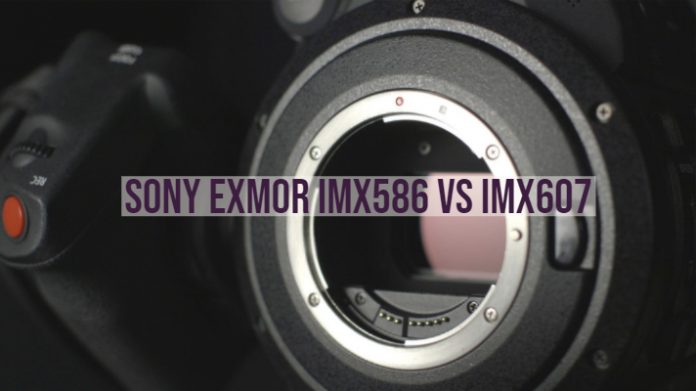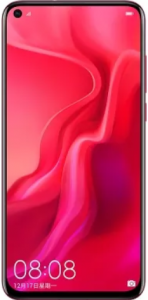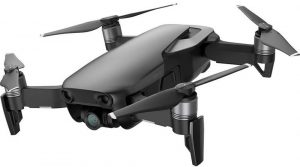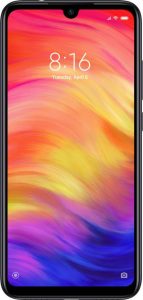Sony may not be performing well in the smartphone segment, but it has been showing excellent performance in terms of smartphone camera sensor tech. Yes, we are talking about the camera sensors used on smartphone cameras. While Sony launched an IMX586 sensor that could shoot images in 48 MP, recently the company came up with a new launch in the form of IMX607 that offers a 38 MP resolution. In today’s article, we will be comparing the Sony EXMOR IMX586 vs IMX607 specs. Read along to know more.
Related: Samsung Isocell GM1 vs Sony IMX586
What are Sony EXMOR Sensors?
Well, Exmor is a technology developed by Sony especially for the on-chip analog to digital signal conversion. The technology focusses on the noise reduction functionality to arrive at the best possible results on a smartphone camera.
It has been one of the industry’s leading technology when one thinks of the smartphone cameras and their sensor implementations. The technology has also been implemented in several sensors on their DSLR cameras. The Exmor range of sensors is available in four variants – Exmor sensors, Exmor R sensors, Exmor RS sensors, and Exmor imaging modules. The Exmor R sensors have been designed with the illuminated backlight. Exmor R is the first sensor to launch this technology. The Exmor RS sensors come with the stacked CMOS image processing sensor. This technology was first launched in 2012.
The camera sensors we are discussing here belong to the Sony Exmor RS sensor types.
Sony IMX519 vs. IMX486 vs. IMX386 vs. IMX586 vs. IMX377 – Comparison Table
| Specification | Sony Exmor RS IMX 519 | Sony Exmor RS IMX 486
| IMX386 | IMX 586 | IMX377
|
| Effective Pixels / Video | 16 MP | 12 MP (4032 x 3016) | 12 MP (3968 x 2976) @ 4:3 9.03 MP @ 17:9 | 48 MP (8000 (H) × 6000 (V)) 4K(4096×2160) @ 90fps 1080p @ 240fps 720p, 480p | 12.2 MP (4032 x 3024) 35 FPS @12 Bit 40 FPS @ 10 Bit
|
| Sensor Size | 6.828 mm (1/2.6”) | 6.2 mm (1/2.9”) | 6.2 mm(1/2.9”) | 8.0 mm diagonal (1/2-type) | 7.81 mm (1/2.3″) |
| Unit Cell Size | 1.22 um | 1.25 um | 1.25 Microns | 1.6 μm pixels | 1.55 μm |
| Sensitivity | – | – | – | 133-LSB | |
| Sensor Saturation Signal | – | – | – | 4500e | |
| Video Output | – | – | – | MIPI C-PHY1.0 (3 trio) / D-PHY 1.2 (4 lane) | – |
| Subpixel Layout | RGB | RGB | RGB | RGB | RGB (On-chip mosaic filters) |
| Phase Detection Autofocus | Yes | Yes | Yes | Yes | Yes |
| Gyro Image Stabilization | – | – | – | ||
| Built-in DRAM Memory | – | – | – | ||
| Release Date | February 2018 | February 2018 | Jul 2016 | Jul 2018 | April 2015 |
| Utilizing Devices | Oppo R15 | Xiaomi Redmi Note 5 Pro Xiaomi Mi 6X | – | LG Nexus 5X Huawei Nexus 6P HTC 10 Xiaomi – Yi 4K Action Camera DJI Mavic Pro (Drone) |
The IMX607 – An Overview
The new Sony camera sensor, IMX607 is one of the latest options that has been optimized for low light photography. The technology used in the sensor – Dual Bayer technique, but there are no more details currently available about the exact status of the sensors.
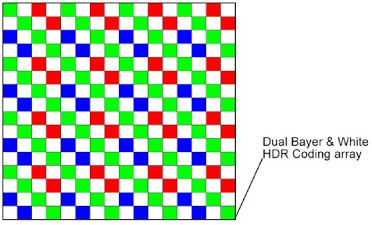
The sensor makes use of the white pixels in addition to the existing array of RGB pixels. The cameras using the sensor will capture more light through the white pixels. This will help you get better details and more brightness in your videos and images. Thus you will find a better performance in terms of low light photography.
The sensor uses Quad Pixel Phase Detection Auto Focus referred to as QPDAF for a faster and better autofocus function. The specifications also state that the new sensor will feature high-SNR pixel binning readout function, advanced noise reduction, dual sensor synchronization operation, and built-in ambient light and temperature sensors.
The service is expected to launch with the high-end flagship devices being launched in 2019. The most likely devices to include the new sensor include Google Pixel 4 or Google Pixel 4 XL. However, there is no official confirmation available for the availability of the sensors on the Google’s smartphones as yet. However, the new sensor is likely to be introduced with the Huawei Mate devices. We would expect the sensor to be launched with Huawei P30 Mate in 2019.
The specification of the sensors read as follows –
- The sensor is back-illuminated and offers you a stacked CMOS sensor performance
- It provides you access to a two-wire serial communication.
- It will provide you access to the high level of the signal to noise ratio.
- An exceptional low light performance.
- The built-in sensor for temperature.
- Ambient light sensors.
IMX586 Sensor – An introduction
The IMX586 sensor launched by Sony is designed and launched in 2018 and offers a performance that has been quite dramatic. Yes, we are referring to the 48 MP sensor with 8000 x 6000-pixel resolution. Sony says this is the highest pixel count in the industry, and that is indeed entirely true.
However, the higher megapixel count alone cannot guarantee a good performance. The smaller pixel size can produce a higher level of noise in low light conditions. However, Sony claims that it will opt for the Quad Bayer filter correction and this is likely to offer the low light functionality that is equivalent to 12 MP sensors. The standard sensors with 12 MP resolution offer you 1.6-micron sized pixels, while the 48 MP sensor provides you pixel size of 0.8 microns.
The technology used here is called pixel binning. However, the new IMX586 is expected to be one of the mainstream solutions, in sharp contrast to the experimental options used on the previous versions.
The features of IMX586 can be summarised as follows:
- It offers you world’s highest degree of pixel count in the world – 48 MP (2018)
- Quad Bayer array design for an enhanced performance higher sensitivity and better resolution. This can be an added advantage for low light situations.
- A better dynamic range and excellent real-time output. You will get images with minimal blowout or loss in detail.
- You can expect higher saturation levels and sensitivity.
The higher dynamic range offered by the sensor is what would provide you access to the better exposure control and a high-end signal processing functionalities.
The Comparison: IMX586 vs IMX607
The IMX607 is the new option and has not been made available as yet. This would mean the specifications have not yet officially available. However, we will try making a comparison between the two competing sensors from Sony’s stable.
| Features / Particulars | Sony IMX586 | Sony IMX607 TBD |
| Effective pixels | 48 MP | 38 MP |
| Video resolution | 4K at 90 fps 1080p at 240 fps 720p and 480p | Not available |
| Sensor size | 8 mm diagonal | 9.99mm diagonal 1/8-inch Sensor size |
| Unit pixel size | 1.6 microns | 0.8 microns |
| Sub-pixel layout | RGB | RGB+ white pixels |
| Phase detection autofocus | Yes, available | Yes, Quad Phase-detection autofocus (Q-PDAF) |
The Concluding Thoughts
That was a complete comparison between the Sony IMX607 and Sony IMX586 sensors based on the specifications available as of now. The company has not yet offered any specific details about the IMX607 sensor and the spec sheet for the sensor. However, there have been a few leaks that have been doing the rounds on the technology websites.
So, that would leave us with the details as in the above discussion. However, we would promise to share more information on the specifications and features about the new sensor along with the phones that the sensor has been used for through an update to this post.

